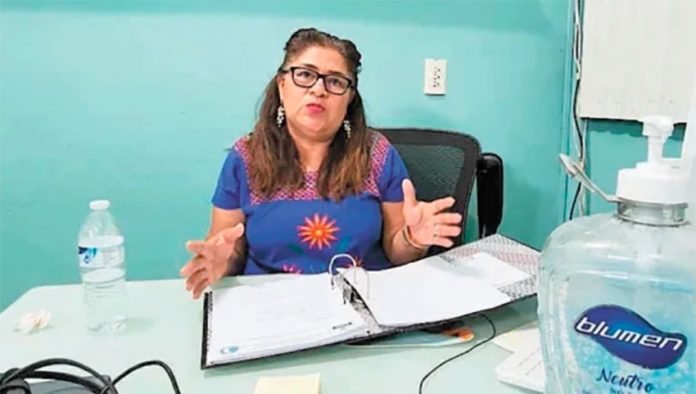President López Obrador assured the nation this week that domestic violence has not increased during the coronavirus quarantine.
Yet his statement directly contradicts evidence collected by the National Human Rights Commission (CNDH), which shows a significant upswing in the number of family violence-related emergency calls, and his own interior secretary.
“In the case of violence in general and violence against women we have not noticed an increase … the way we measure it is through complaints that are presented and there may be unreported cases, but there has been no increase in complaints,” López Obrador stated in a press conference on Thursday where he went on to extol the strength of family bonds in Mexico.
But the numbers paint a very different picture of what life has been life during isolation for at-risk women and families.
The CNDH reported that between January and March the number of women murdered in Mexico per day increased to 10.6, compared to the 10.5 during the same period of 2019.
But reports of domestic violence showed the greatest increase under the stay-at-home mandate.
“From January to March 2020, 170,214 emergency calls related to incidents of domestic violence were registered; 52,498 in January, 52,858 in February and 64,858 in March,” the CNDH said in a report.
Quarantine orders began in March, and nearly 11,000 more cases were reported that month compared to January and February.
March also saw 20,232 new domestic violence investigations opened by authorities, an increase of 13.7% over February and 23.3% over March 2019. It was the highest number of investigations opened since López Obrador took office.
The National Public Security System reports that in the first three months of this year, state Attorney General’s offices opened 53,877 new domestic violence investigations.
The average number of new cases per day shot up from 511 in January to 613 in February and reached 652 in March.
After Interior Secretary Olga Sánchez Cordero estimated that violence against women had increased 60% during the coronavirus isolation period, the president said it wasn’t necessarily true.
Such violence “cannot be measured using the same parameters as the rest of the world. In Mexico we have a culture of solidarity within the family,” López Obrador said.
“The family in Mexico is exceptional, it the most fraternal human nucleus; this is not the case in other places [and] I say it with all due respect …”
A member of a national network of women’s shelters said it was worrying that the president was unaware of official data regarding domestic violence and called his position on family fraternity “patriarchal.”
If it were true that all Mexican families enjoyed such fraternity there wouldn’t be as many femicides and indigenous women wouldn’t be fleeing their communities, said Rogelia González Luis of an indigenous women’s shelter in Juchitán, Oaxaca.
The CNDH urged government agencies to come up with a plan to address the increase of domestic violence during the coronavirus quarantine, including educational campaigns, improved methods of communication with authorities and more efficiency in issuing protective orders against aggressors.
Source: El Universal (sp), Reforma (sp)
